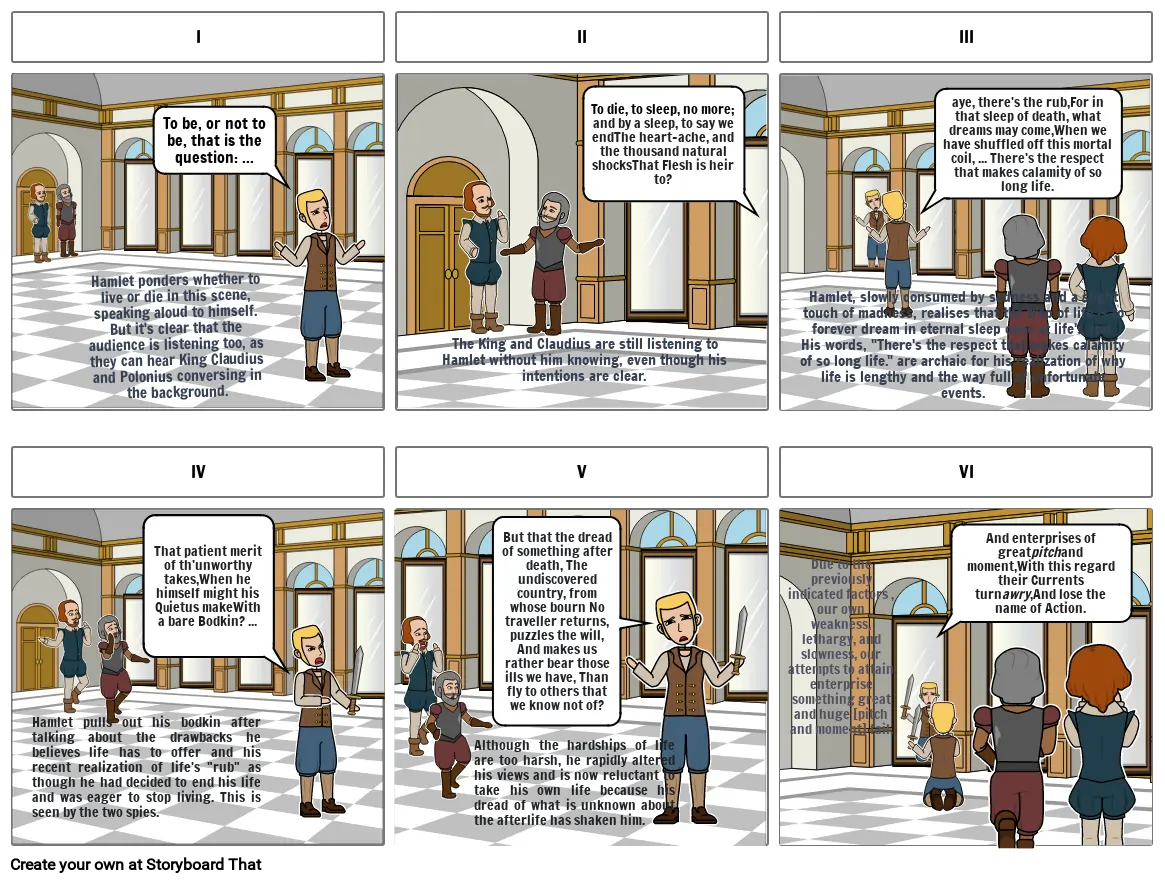shakesphere story board

Montāžas Teksta
- I
- Hamlet ponders whether to live or die in this scene, speaking aloud to himself. But it's clear that the audience is listening too, as they can hear King Claudius and Polonius conversing in the background.
- To be, or not to be, that is the question: ...
- II
- To die, to sleep, no more; and by a sleep, to say we endThe heart-ache, and the thousand natural shocksThat Flesh is heir to?
- III
- Hamlet, slowly consumed by sadness and a slight touch of madness, realises that the trap of life is to forever dream in eternal sleep once at life's end. His words, "There's the respect that makes calamity of so long life." are archaic for his realization of why life is lengthy and the way full of unfortunate events.
- aye, there's the rub,For in that sleep of death, what dreams may come,When we have shuffled off this mortal coil, ... There's the respect that makes calamity of so long life.
- IV
- That patient merit of th'unworthy takes,When he himself might his Quietus makeWith a bare Bodkin? ...
- V
- The King and Claudius are still listening to Hamlet without him knowing, even though his intentions are clear.
- But that the dread of something after death, The undiscovered country, from whose bourn No traveller returns, puzzles the will, And makes us rather bear those ills we have, Than fly to others that we know not of?
- VI
- Due to the previously indicated factors , our own weakness, lethargy, and slowness, our attempts to attain enterprise something great and huge [pitch and moment] fail.
- And enterprises of greatpitchand moment,With this regard their Currents turnawry,And lose the name of Action.
- Hamlet pulls out his bodkin after talking about the drawbacks he believes life has to offer and his recent realization of life's "rub" as though he had decided to end his life and was eager to stop living. This is seen by the two spies.
- Although the hardships of life are too harsh, he rapidly altered his views and is now reluctant to take his own life because his dread of what is unknown about the afterlife has shaken him.
Izveidoti vairāk nekā 30 miljoni stāstu shēmu

